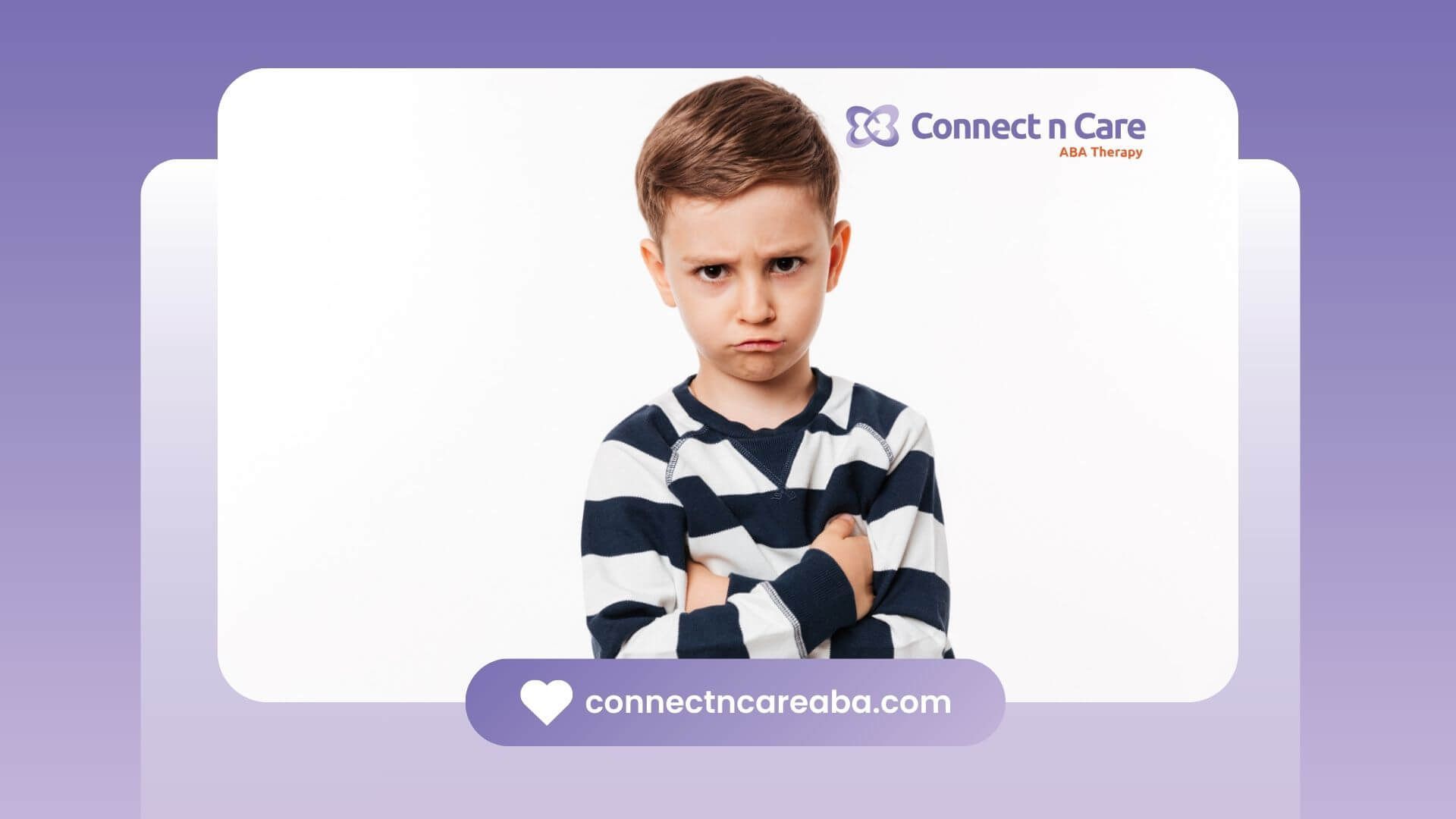Key Highlights
- Support groups play a crucial role in providing support for individuals with autism and their families.
- Autism groups can help improve mental health, social skills, and overall quality of life.
- There are different types of support available, including online and in-person options.
- Finding the right support group involves considering factors such as location, services provided, and compatibility with individual needs.
- Support groups cater to various specific needs, including parent support groups and support networks for autistic adults.
- Support groups can create a supportive community environment by promoting public awareness and inclusion.
Introduction
Finding a supportive community is essential for individuals with autism and their families. Autism support groups provide a safe space where individuals can connect, share experiences, and gain valuable support. These groups play a vital role in creating a sense of belonging and offering a support network for those affected by autism. In this blog, we will explore the importance of autism support groups and how they can benefit individuals with autism and their families. We will also discuss the different types of support groups available and provide tips for finding the right support group for your needs.
Understanding Autism and Its Impact
Autism, also known as autism spectrum disorder (ASD), is a developmental disability characterized by challenges in social interaction, communication, and repetitive behaviors. It affects individuals across a wide range, often referred to as the autism spectrum. Autism can have a significant impact on individuals' lives, as well as their families. It is important to understand the unique challenges faced by individuals with autism and the need for support to help them navigate these challenges.
The Spectrum of Autism Disorders Explained
Autism spectrum disorder encompasses a range of conditions that affect individuals differently. While some individuals with autism may have mild symptoms and high functioning abilities, others may have more severe impairments that require significant support. The spectrum includes conditions such as Asperger syndrome, pervasive developmental disorder-not otherwise specified (PDD-NOS), and childhood disintegrative disorder. Understanding the spectrum is essential for recognizing the diverse needs and experiences of individuals with autism.
Recognizing Early Signs and Symptoms in Children
Early intervention is crucial for children with autism. Recognizing the early signs and symptoms can lead to timely diagnosis and access to the necessary support and services. Some common early signs of autism in children include a lack of or limited eye contact, delayed speech or language development, repetitive behaviors, and difficulty with social interactions. It is important for parents, caregivers, and healthcare professionals to be aware of these signs to ensure early intervention and support for children with autism.
The Importance of Support Groups for Autism
Support groups play a crucial role in providing a support system for individuals with autism and their families. Autism can be a challenging journey, and having a support network can make a significant difference in coping with the daily struggles. Support groups provide a safe space where individuals can share their experiences, concerns, and triumphs. They offer emotional support, practical advice, and a sense of community. Being part of a support group can improve mental health, reduce feelings of isolation, and enhance overall well-being.
How Support Groups Can Benefit Families and Individuals
Support groups offer numerous benefits to both individuals with autism and their families. They provide a space for individuals to connect with others who understand their experiences and challenges. This sense of belonging can alleviate feelings of isolation and provide emotional support. Support groups also offer a platform for sharing strategies, resources, and information. They can help individuals develop social skills, improve self-advocacy, and gain a better understanding of autism. For families, support groups provide a network of individuals who can offer guidance, empathy, and practical advice. Overall, support groups enhance mental health, boost self-confidence, and improve the quality of life for individuals with autism and their families.
Types of Support Groups: Online vs. In-Person
Support groups can be categorized into online and in-person groups. Online support groups provide the convenience of connecting with others from the comfort of home. They offer a virtual space for sharing experiences, seeking advice, and accessing resources. Online groups can be particularly beneficial for individuals who may have limited access to in-person support due to geographic or mobility constraints. In-person support groups, on the other hand, provide the opportunity for face-to-face interactions and a sense of community. They allow individuals to build personal connections, engage in group activities, and receive immediate support. Both online and in-person support groups have their advantages, and the choice depends on individual preferences and needs.
Finding the Right Support Group for You
Finding the right support group is crucial for individuals with autism and their families. It involves considering factors such as location, services provided, and compatibility with individual needs. The Autism Society of North Carolina (ASNC) is a valuable resource for finding autism support groups. ASNC offers a comprehensive directory of support groups across North Carolina, catering to various specific needs. Additionally, online platforms such as Meetup.com provide listings of support groups for autistic individuals and their families. It is important to research and reach out to different support groups to find the one that best meets your requirements.
Tips for Choosing a Support Group
Choosing the right support group requires careful consideration. Here are some tips to help you make an informed decision:
- Research: Take the time to research different support groups in your area or online. Consider factors such as the group's focus, meeting frequency, and structure.
- Compatibility: Ensure that the support group aligns with your needs and goals. Consider factors such as the age range of the participants and the specific challenges or interests addressed by the group.
- Safe Space:
Look for a support group that creates a safe and inclusive environment. It should prioritize respect, confidentiality, and non-judgmental attitudes.
- Service Providers: Consider whether the support group has partnerships with service providers or professionals who can offer guidance, resources, or referrals.
- Registration: Some support groups require registration or membership. Understand the registration process and any associated fees or commitments before joining.
By following these tips, you can find a support group that provides the necessary support, resources, and community for you or your loved one with autism.
Questions to Ask Before Joining
Before joining a support group, it is essential to ask the right questions to ensure it aligns with your needs. Here are some questions to consider:
- What is the focus or purpose of the support group? Does it address your specific needs or interests?
- Who leads or moderates the support group? Are they trained professionals or individuals with personal experience in autism?
- How often does the support group meet, and where? Is it convenient for you to attend the meetings?
- What is the structure of the support group? Is it an open discussion format or a more structured program?
- Are there any associated costs or commitments involved in joining the support group?
- Are there any additional resources, services, or workshops provided by the support group?
By asking these questions, you can gather the necessary information to make an informed decision and find the support group that best suits your needs.
Support Groups for Specific Needs
Support groups cater to various specific needs within the autism community. These groups offer specialized support and resources for individuals with autism and their families. For example, there are parent support groups that focus on providing guidance, empathy, and practical advice to parents of autistic children. Additionally, support networks for autistic adults offer a community where individuals can connect, share experiences, and discuss topics relevant to adulthood. Other specific support groups include Hispanic support groups, sibling support projects, and employment services for autistic individuals. These groups create tailored support systems that address the unique challenges faced by individuals with autism.
Groups for Parents of Autistic Children
Parents of autistic children often face unique challenges and can benefit greatly from support groups. These groups provide a space for parents to connect with others who understand their experiences, share advice, and offer emotional support. The Autism Society of North Carolina (ASNC) offers virtual support groups specifically for parents of children, teens, and young adults. These groups provide a platform for parents to discuss topics such as navigating the education system, accessing services, and promoting social skills development. Additionally, ASNC offers support groups for fathers and grandparents, recognizing the importance of different family members' perspectives and needs. Parent support groups play a crucial role in empowering parents, reducing feelings of isolation, and providing a support network throughout their journey.
Support Networks for Autistic Adults
Support networks for autistic adults offer a community where individuals can connect, share experiences, and find understanding. These groups provide a safe space for autistic individuals to discuss topics relevant to adulthood, such as employment, relationships, and self-advocacy. The Global and Regional Autism Spectrum Partnership (GRASP) offers online support groups specifically for autistic adults. These groups provide a platform for individuals to connect with others who share similar experiences and challenges. The Aspergers/Autism Network (AANE) also offers online support groups for adults, as well as free social events and clubs. Support networks for autistic adults play a vital role in promoting self-acceptance, building social connections, and enhancing overall well-being.
Creating a Supportive Community Environment
Creating a supportive community environment is essential for individuals with autism and their families. This involves initiatives that promote public awareness, acceptance, and inclusion. Educational institutions, such as public schools, play a crucial role in creating an inclusive environment for individuals with autism. They can provide resources, accommodations, and specialized support services to ensure the success and well-being of students with autism. Community initiatives, such as awareness campaigns and public events, can also contribute to creating an inclusive and supportive environment. By working together, we can create a community where individuals with autism are valued, understood, and provided with opportunities to thrive.
The Role of Schools and Educational Institutions
Educational institutions, particularly public schools, play a vital role in supporting individuals with autism. These institutions provide various resources and accommodations to ensure that students with autism can access quality education in an inclusive environment. Public schools may offer specialized support services, such as individualized education plans (IEPs), speech therapy, occupational therapy, and social skills training. They promote inclusion and provide a supportive network for students with autism, their families, and educators. By creating an inclusive educational environment, schools contribute to the overall well-being and success of individuals with autism.
Community Initiatives and Public Awareness
Community initiatives and public awareness campaigns are essential for promoting understanding and acceptance of autism. These initiatives aim to educate the public about autism, dispel misconceptions, and reduce stigma. They help create a more inclusive community where individuals with autism are valued and supported. Public events, such as autism awareness walks, conferences, and workshops, provide opportunities for individuals to learn about autism and connect with others. By raising awareness, community initiatives foster a sense of empathy, compassion, and support for individuals with autism and their families. It is through these efforts that we can create a community that celebrates the unique gifts and contributions of individuals with autism.
Navigating Challenges Together
Navigating the challenges of autism can be overwhelming, but having a support network can make a significant difference. Support groups provide a safe space where individuals can share their challenges, seek advice, and find support. By connecting with others who understand their experiences, individuals with autism and their families can gain valuable insights, coping strategies, and encouragement. Support groups also offer a support system that helps individuals navigate the ups and downs of their journey, promoting mental health, resilience, and overall well-being.
Sharing Success Stories and Strategies
Support groups provide an opportunity for individuals with autism and their families to share their success stories and strategies. These stories inspire and motivate others, offering hope and encouragement. By sharing their experiences, individuals can provide valuable insights and advice to others facing similar challenges. Success stories may include milestones achieved, new skills acquired, or personal triumphs. Strategies shared may involve coping mechanisms, communication techniques, or approaches to daily challenges. These shared experiences and strategies foster a sense of community, empower individuals, and promote the exchange of knowledge and support.
Dealing with Setbacks and Challenges
Support groups offer a safe space for individuals with autism and their families to discuss setbacks and challenges openly. It is through these discussions that individuals can find empathy, understanding, and support. Dealing with setbacks and challenges is a natural part of the journey with autism. Support groups provide a supportive network that can offer guidance, coping strategies, and resilience. By sharing experiences and learning from others, individuals can develop effective strategies to overcome challenges and navigate setbacks. Support groups serve as a reminder that individuals with autism are not alone and that they have a community that understands and supports them.
Resources and Tools for Support Groups
Support groups can benefit from various resources and tools that provide valuable information and guidance. These resources can include educational materials, workshops, advocacy services, and legal resources. They equip support groups with the necessary knowledge and tools to address the specific needs of individuals with autism. For example, the TEACCH Autism Program offers educational materials and workshops to support autism-related programs. Advocacy organizations, such as Autism Speaks and the Autism Society of North Carolina, provide resources and legal support to individuals with autism and their families. These resources and tools empower support groups to create an inclusive and supportive environment for individuals with autism.
Educational Materials and Workshops
Educational materials and workshops are valuable resources for support groups. These materials provide information, strategies, and tools relevant to autism. The TEACCH Autism Program offers educational materials and workshops that cater to diverse needs and age groups. These resources cover topics such as communication, social skills, sensory issues, and employment. Workshops provide opportunities for support group members to learn from professionals, share experiences, and acquire new skills. Educational materials and workshops enhance the knowledge and understanding of support group members, enabling them to better support individuals with autism and their families.
Advocacy and Legal Resources
Advocacy and legal resources are essential for support groups to assist individuals with autism and their families. These resources provide guidance, support, and legal information pertaining to autism-related issues. Autism advocacy organizations, such as Autism Speaks and the Autism Society of North Carolina, offer a range of resources and services. These include autism response teams, resource guides, and information on rights coordination. Legal resources may include information on insurance coverage, disability rights, and educational rights. By accessing these resources, support groups can advocate for the needs and rights of individuals with autism, ensuring they receive the support and services they require.
Conclusion
Support groups play a crucial role in empowering individuals and families affected by autism. By fostering understanding, sharing experiences, and offering valuable resources, these groups provide a supportive community environment. Whether online or in-person, finding the right support group is key to navigating the challenges associated with autism. Through educational materials, workshops, and advocacy resources, these groups offer a lifeline for those seeking guidance and connection. Remember, you are not alone on this journey. Reach out, engage, and discover the strength of collective support in your autism community.









